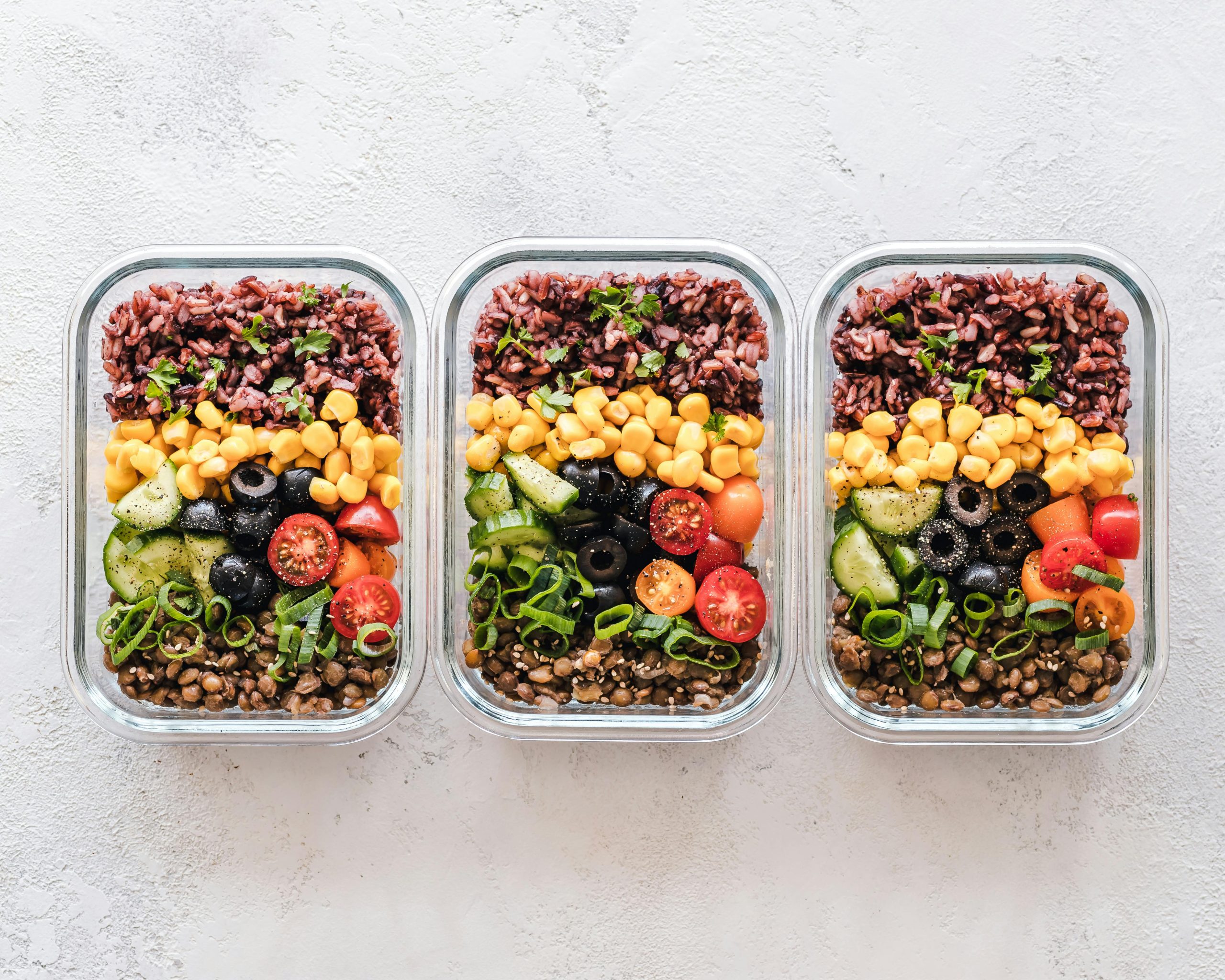Building muscle isn’t just about lifting weights—it’s about fueling your body with the right nutrients at the right times. A well-structured meal plan is the backbone of muscle growth, ensuring you get enough protein, carbs, and healthy fats to support recovery and hypertrophy. Whether you’re a beginner or an experienced lifter, this 2025 guide will help you craft a perfectly balanced meal plan for optimal muscle gain.
The Science Behind Muscle Growth and Nutrition
Muscle growth, or hypertrophy, occurs when muscle fibers repair and grow after resistance training. To maximize this process, your body needs three key macronutrients:
- Protein: The building block of muscle, providing amino acids for repair and growth.
- Carbohydrates: Your body’s primary energy source, fueling workouts and replenishing glycogen stores.
- Fats: Essential for hormone production, including testosterone, which plays a crucial role in muscle development.
Beyond macros, micronutrients like vitamins and minerals support metabolic processes, while proper hydration ensures optimal performance and recovery. A balanced meal plan accounts for all these factors.
Calculating Your Macronutrient Needs
Before designing your meal plan, you need to determine your daily caloric and macronutrient requirements. Here’s how:
Step 1: Estimate Your Maintenance Calories
Use an online calculator or the Mifflin-St Jeor equation to find your Basal Metabolic Rate (BMR), then adjust for activity level. To gain muscle, aim for a caloric surplus of 250-500 calories per day.
Step 2: Set Your Protein Intake
For muscle gain, consume 1.6-2.2 grams of protein per kilogram of body weight. For example, an 80 kg lifter should aim for 128-176 grams of protein daily.
Step 3: Balance Carbs and Fats
Fill the remaining calories with carbs and fats. A good starting ratio is:
- 40-50% carbs (4-6 g/kg of body weight)
- 20-30% fats (0.5-1 g/kg of body weight)
Adjust based on energy levels and performance.
Building Your Muscle-Gain Meal Plan
Now, let’s break down how to structure your meals for maximum muscle growth.
Meal Timing and Frequency
While total daily intake matters most, spreading meals across 4-6 servings can optimize protein synthesis and energy levels. Key times to prioritize:
- Pre-workout: Carbs + moderate protein (e.g., oatmeal + whey protein)
- Post-workout: Fast-digesting protein + carbs (e.g., chicken + rice)
- Before bed: Slow-digesting protein (e.g., cottage cheese or casein)
Sample Meal Plan
Here’s a balanced one-day meal plan for an 80 kg lifter:
- Breakfast: 3 eggs, 100g oats, 1 banana, 1 tbsp peanut butter
- Snack: Greek yogurt + mixed berries + 30g almonds
- Lunch: 150g grilled chicken, 150g quinoa, roasted vegetables
- Pre-workout: Whey protein shake + 1 apple
- Post-workout: 200g salmon, 200g sweet potato, steamed broccoli
- Before bed: Cottage cheese + 1 tbsp flaxseeds
Top Foods for Muscle Gain in 2025
Incorporate these nutrient-dense foods into your meal plan for best results:
Protein Sources
- Animal-based: Chicken breast, lean beef, salmon, eggs, Greek yogurt
- Plant-based: Tofu, tempeh, lentils, chickpeas, pea protein
Carbohydrate Sources
- Complex carbs: Brown rice, quinoa, oats, sweet potatoes
- Fruits & veggies: Bananas, berries, spinach, broccoli
Healthy Fats
- Avocados, nuts (almonds, walnuts), seeds (chia, flax), olive oil
Common Mistakes to Avoid
Even with a solid plan, small errors can hinder progress. Watch out for these pitfalls:
- Neglecting micronutrients: Vitamins and minerals are crucial for recovery. Eat a variety of colorful vegetables.
- Over-relying on supplements: Whole foods should make up 80-90% of your diet.
- Inconsistent eating: Skipping meals can lead to inadequate protein and calorie intake.
- Ignoring hydration: Dehydration impairs performance and recovery. Aim for 3-4 liters of water daily.
Conclusion
Building a balanced meal plan for muscle gain requires careful planning, but the results are worth it. Focus on hitting your protein, carb, and fat targets with nutrient-dense foods, and adjust portions based on your progress. Remember, consistency is key—stick to your plan, track your intake, and refine as needed. With the right nutrition strategy, you’ll fuel your workouts, recover faster, and achieve the muscle growth you’ve been working toward.
